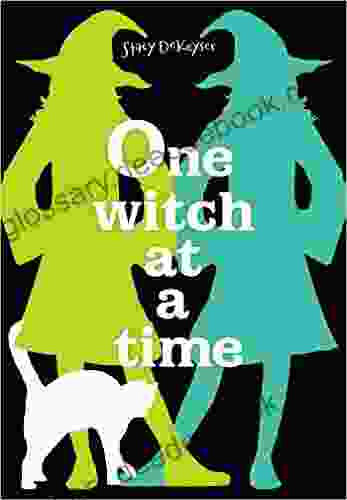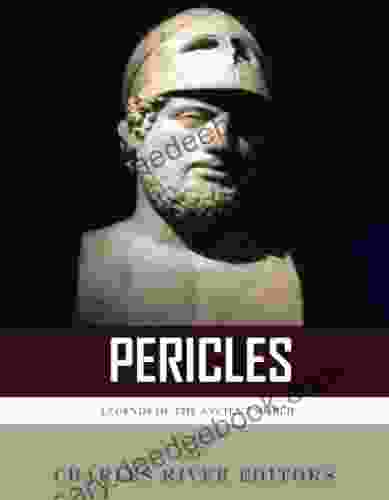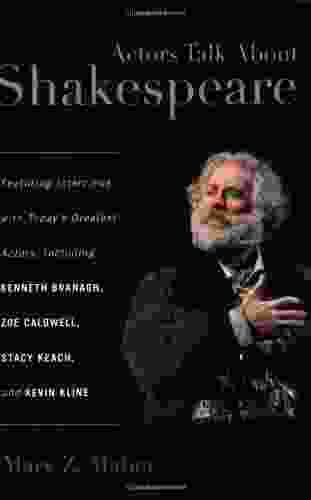Analytical Psychology and German Classical Aesthetics: Exploring the Psyche and the Sublime


Analytical psychology, founded by Carl Jung, is a depth psychology that explores the unconscious mind and its influence on human thought, feeling, and behavior. German classical aesthetics, a philosophical and art theory movement that emerged in the 18th century, focuses on the nature of beauty and the sublime in art and literature. This article examines the intriguing connections between analytical psychology and German classical aesthetics, exploring how these disciplines shed light on each other and offer profound insights into the human psyche.
5 out of 5
| Language | : | English |
| File size | : | 1014 KB |
| Text-to-Speech | : | Enabled |
| Screen Reader | : | Supported |
| Enhanced typesetting | : | Enabled |
| Print length | : | 392 pages |
| X-Ray for textbooks | : | Enabled |
Carl Jung and the Unconscious Mind
Carl Jung (1875-1961) was a Swiss psychiatrist and psychoanalyst who developed analytical psychology. He believed that the human mind is a complex system that consists of both the conscious and unconscious mind. The unconscious mind, according to Jung, contains repressed memories, instincts, and archetypes that shape our personality and behavior.
Jung's theory of the unconscious mind has significant implications for aesthetics. He argued that art and literature often tap into the unconscious mind, expressing its contents in symbolic and archetypal forms. By analyzing these symbols and archetypes, we can gain insights into the collective unconscious, the shared experiences and beliefs of humanity.
The Sublime in German Classical Aesthetics
German classical aesthetics, represented by philosophers such as Immanuel Kant and Friedrich Schiller, focused on the concept of the sublime. The sublime is an aesthetic category that refers to the overwhelming, awe-inspiring, or transcendent experiences that arise from encountering something vast, powerful, or dangerous.
Kant believed that the sublime experience is a combination of pleasure and pain. The vastness or power of a sublime object fills us with awe and wonder, but it can also be overwhelming and even terrifying. This tension between pleasure and pain creates a unique aesthetic experience that transcends the ordinary and mundane.
Analytical Psychology and the Sublime
Analytical psychology offers a unique perspective on the sublime experience. Jung argued that the sublime arises from the encounter with archetypes, particularly the archetype of the Self. The Self is the totality of the psyche, representing the integration of the conscious and unconscious mind.
When we encounter something truly sublime, it evokes a sense of the vastness and power of the unconscious. We recognize that our own conscious mind is but a small part of a larger, unknown reality. This recognition can be both exhilarating and terrifying, creating the paradoxical blend of pleasure and pain that characterizes the sublime experience.
Jungian Symbolism in Art and Literature
Jungian psychology has influenced numerous artists and writers, who have incorporated its symbols and archetypes into their work. For example, the Swiss artist Hermann Hesse explores the themes of individuation and the search for the Self in his novel "Demian." The American poet Robert Bly uses Jungian archetypes to explore the masculine psyche in his poetry collection "The Light Around the Body."
By understanding the Jungian symbolism in art and literature, we can gain deeper insights into the human psyche and the universal themes that connect us. Art and literature become powerful tools for exploring our own unconscious mind and fostering our psychological growth.
Analytical psychology and German classical aesthetics offer complementary perspectives on the human psyche and the transformative power of art. By exploring the symbols and archetypes of the unconscious mind, we can gain a deeper understanding of the sublime experience and its profound impact on our lives.
Analytical psychology provides a framework for interpreting the symbols and archetypes found in art and literature, revealing the universal themes that resonate with our collective unconscious. German classical aesthetics offers a philosophical understanding of the sublime experience, highlighting the tension between pleasure and pain that characterizes our encounter with the vast and unknown.
Together, analytical psychology and German classical aesthetics offer a multifaceted approach to understanding the human psyche, the nature of art, and the transformative power of the sublime. As we continue to delve into these disciplines, we uncover new insights into ourselves and the world around us, enriching our lives with meaning and purpose.
5 out of 5
| Language | : | English |
| File size | : | 1014 KB |
| Text-to-Speech | : | Enabled |
| Screen Reader | : | Supported |
| Enhanced typesetting | : | Enabled |
| Print length | : | 392 pages |
| X-Ray for textbooks | : | Enabled |
Do you want to contribute by writing guest posts on this blog?
Please contact us and send us a resume of previous articles that you have written.
 Book
Book Novel
Novel Text
Text Story
Story Genre
Genre Reader
Reader E-book
E-book Magazine
Magazine Newspaper
Newspaper Paragraph
Paragraph Sentence
Sentence Glossary
Glossary Bibliography
Bibliography Foreword
Foreword Annotation
Annotation Manuscript
Manuscript Scroll
Scroll Tome
Tome Bestseller
Bestseller Classics
Classics Library card
Library card Narrative
Narrative Biography
Biography Autobiography
Autobiography Encyclopedia
Encyclopedia Narrator
Narrator Card Catalog
Card Catalog Borrowing
Borrowing Stacks
Stacks Periodicals
Periodicals Lending
Lending Academic
Academic Reading Room
Reading Room Rare Books
Rare Books Special Collections
Special Collections Interlibrary
Interlibrary Storytelling
Storytelling Book Club
Book Club Theory
Theory Textbooks
Textbooks Anthony Gilbert
Anthony Gilbert Augustus Young
Augustus Young James D Doss
James D Doss Dan Hough
Dan Hough Jane Ralls
Jane Ralls Noah Berlatsky
Noah Berlatsky Ben Tarnoff
Ben Tarnoff Duncan Fallowell
Duncan Fallowell Sarah Jio
Sarah Jio Augustin Challamel
Augustin Challamel Henning Beck
Henning Beck Janet Hong
Janet Hong Antonia Cardella
Antonia Cardella Matthew Kohut
Matthew Kohut William Weber
William Weber Connie Ann Valenti
Connie Ann Valenti Margaret Willes
Margaret Willes Cassy Stuart
Cassy Stuart Jonathan Baron
Jonathan Baron Dwynwen Hopcroft
Dwynwen Hopcroft
Light bulbAdvertise smarter! Our strategic ad space ensures maximum exposure. Reserve your spot today!
 Boris PasternakFollow ·7.8k
Boris PasternakFollow ·7.8k Fernando BellFollow ·19.7k
Fernando BellFollow ·19.7k Elmer PowellFollow ·5.2k
Elmer PowellFollow ·5.2k Nathaniel PowellFollow ·19.6k
Nathaniel PowellFollow ·19.6k Juan ButlerFollow ·6.2k
Juan ButlerFollow ·6.2k Fredrick CoxFollow ·16.9k
Fredrick CoxFollow ·16.9k Tyrone PowellFollow ·4.1k
Tyrone PowellFollow ·4.1k Herb SimmonsFollow ·16.3k
Herb SimmonsFollow ·16.3k

 Desmond Foster
Desmond FosterTravesti Life in the Favela: An Exploration of Identity,...
In the bustling...

 Bobby Howard
Bobby HowardCorruption and Development in South Korea and the...
Corruption is a major...

 George Martin
George MartinGaslighting, Blame Shifting, and Consent in Marriage: A...
Gaslighting,...

 Grayson Bell
Grayson BellOne Witch at a Time: Dive into the Enchanting World of...
Welcome to the Mystical Realm of...

 James Hayes
James HayesLatino Mass Mobilization: Immigration, Racialization, and...
Latino mass...

 August Hayes
August HayesMarxist Film Theory and Fight Club: A Long-Tail...
Marxist film theory,...
5 out of 5
| Language | : | English |
| File size | : | 1014 KB |
| Text-to-Speech | : | Enabled |
| Screen Reader | : | Supported |
| Enhanced typesetting | : | Enabled |
| Print length | : | 392 pages |
| X-Ray for textbooks | : | Enabled |












